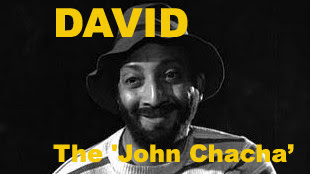Pran, the greatest villain ever in the history of Indian cinema played hero roles from 1940–47. In the 1940s, romantic duets featuring him, like the songs "Tere Naaz Uthane Ko Jee Chahta Hai" from Grihasti, opposite Shardha, and 'Ud Ja Ud Ja Panchhi' from Khandaan (1942), with Noor Jehan, became very popular. He got his first role in Dalsukh M. Pancholi's Punjabi film Yamla Jat (1940). The film featured baby Noor Jehan. as a child artist, Both appeared in Khandan(1942) as romantic leads. It was Noorjehan's first film as an adult. The film was a great success, Noorjehan shifted to Bombay. She shared melodies with Shanta Apte in Duhai (1943).
Pran was working in Lahore, acted in 22 films from 1942 to 1946 in Lahore; 18 were released by 1947. Due to India's partition in 1947, his career had a brief break. His films from 1944 to 1947 were made in undivided India, but Taraash (1951) and Khanabadosh (1952) (both co-starring Manorama) were released only in Pakistan after Partition. He left Lahore and arrived in Bombay. For a few months, he looked for acting opportunities while doing other jobs. He worked in Delmar Hotel, Marine Drive for eight months, after which he got a chance to act in 1948.
This film was Ziddi released in 1948, He got this opportunity because of his friendship with writer Saadat Hasan Manto and actor Shyam, The movie launched Pran's career in Bombay. Incidentally, it proved to be Dev Anand's big break as a hero. Within a week of Ziddi's success, he had signed three more films – S M Yusuf's Grihasti (1948), which became a diamond jubilee hit, Prabhat Films' Apradhi (1949) and Wali Mohammad's Putli (1949). By then, Wali Mohammad, who was responsible for Pran's first role, had come to Bombay and became a producer, setting up an office at Famous Studios, near Mahalaxmi Racecourse
Pran was among the highly successful & respected veteran actors in the history of Indian cinema. He was also one of the highest-paid actors of his time. He played hero roles from 1940–47, a villain from 1948–1991, and played supporting and character roles from 1967–2007. The decades of late 1940s, 1950s, 1960s, and early 1970s were the peak periods of Pran's villainy, especially the 1950s & 1960s. Pran was the first true personification of "evil" on the Indian screen. He is the original badman of Indian cinema. The intensity of his portrayal of negative/villainous characters on the screen was effective enough to desist the Indian people from naming their children "Pran" in the 1950s & 60s & subsequently thereafter (when Pran was at the peak of his villainy).
He was given Padma Bhushan in 2001 and Dadasaheb Phalke Award in 2013









